This Land and Cruise Safari Will Bring Travelers to See Incredible Wildlife — and Sail the World's Largest Artificial Lake in a Luxury Houseboat
This epic safari adventure from CroisiEurope is the perfect family vacation — here's why.
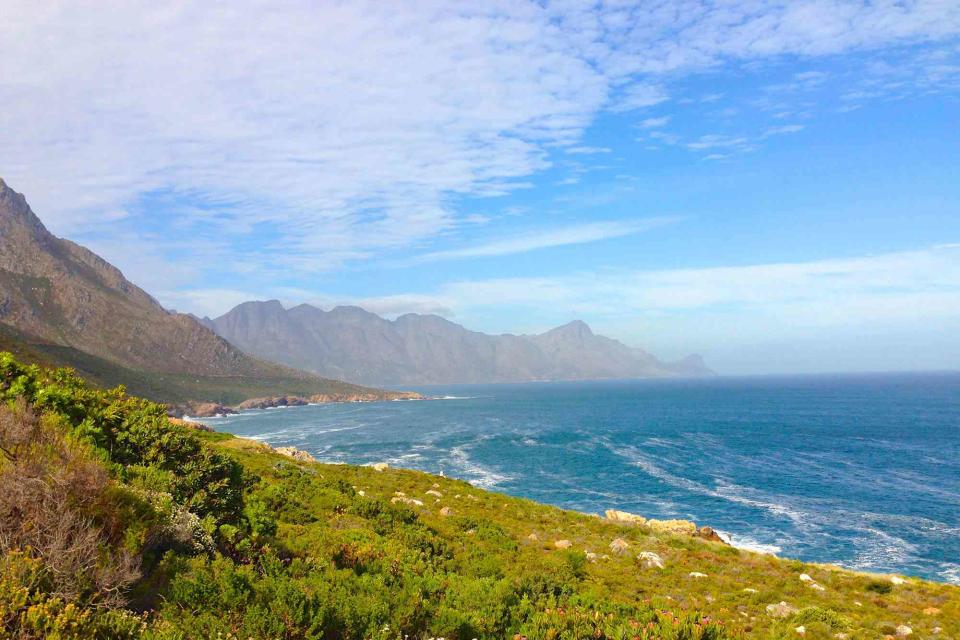
©Croisi Europe
We had waited all morning to see elephants. "Don’t get your hopes up," said our guide, Sonny. It had been rainy, and elephants, per Sonny, don’t like the rain. Apparently, neither do lions, zebras, giraffes, or Cape buffalo. But we saw them all that day. Zebras trotting through a corner of the park where they’re normally rarely seen. Giraffes munching on acacia leaves just a few feet from our Jeep. A group of lions walking down the dirt road like they owned it — because let’s face it, they do.
And when the elephants finally showed up, they came by the dozens — groups of mothers, babies, teenagers, and solitary tuskers. Without exaggeration, it was as if all our safari dreams were fulfilled in a single day.
Our family’s first trip to Africa came by way of CroisiEurope, a French cruise company known for its mid-range, family-friendly European river cruises. The three of us, including my spouse and our 11-year-old daughter, were guests on CroisiEurope’s South Africa land and cruise safari, a nine-day journey that started in Johannesburg, South Africa, and ended at Victoria Falls, Zimbabwe. It was a wildly adventurous trip, taking in four African countries via boats, planes (including some really small vessels), helicopters, and Jeeps.
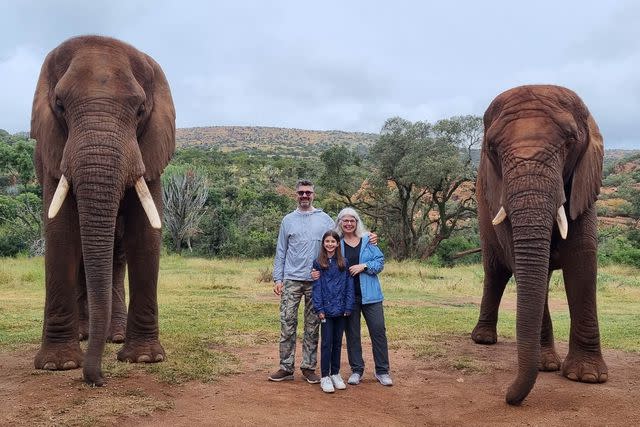
Elizabeth Heath
We arrived in Johannesburg a few days ahead of the organized tour and checked into 54 on Bath, a low-key, modern hotel in the tony Rosebank district. For our first full day, we organized everything through Viator, including a private driver and a visit to the Elephant Sanctuary Hartbeespoort Dam and its adjacent monkey sanctuary.
For those who long to see elephants up close, but are wary of the ethics of wildlife attractions that permit interaction, it’s important to know the animals here are free-ranging and, while trained, can choose whether or not to interact. The chance to touch an elephant, make eye contact with it, and even feed it moved me to tears.
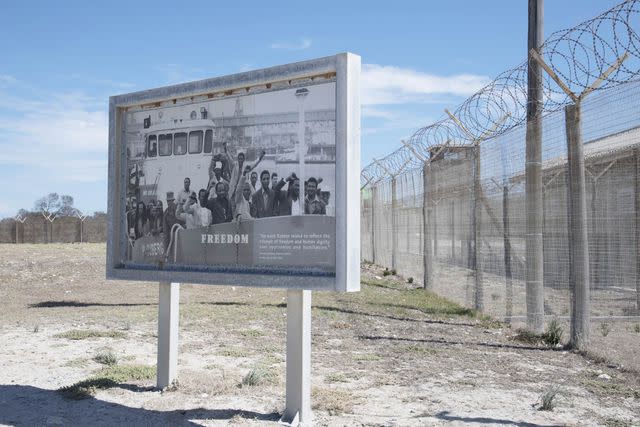
©Alexandre Sattler
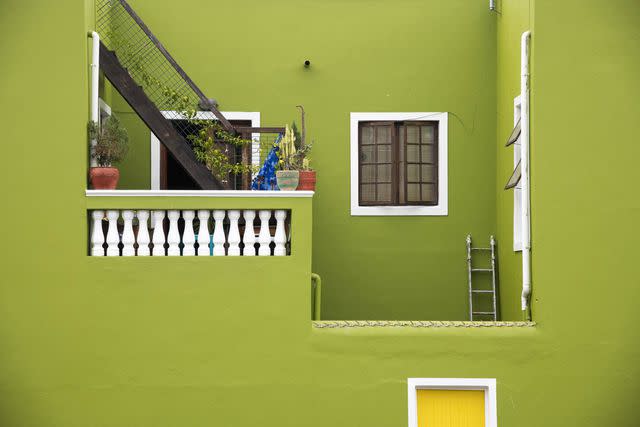
©Alexandre Sattler
When we joined the CroisiEurope group the next day, we headed out for a driving tour of Johannesburg that included the once-thriving CBD (or Central Business District), the Apartheid Museum, and the sprawling Soweto settlement, where the anti-apartheid movement was born and where its bloodiest history played out. The museum takes an unflinching look at South Africa’s brutal past and complicated present, and devotes significant space to Nelson Mandela and other heroes of the anti-apartheid movement. The entire experience is hard to sum up in a few sentences, other than to say that seeing the overcrowded, impoverished swaths of Johannesburg from behind the window of a tour bus, revisiting the museum’s searing images of police violence against 20th-century protestors, and listening as our guide discussed 21st-century disparities between white and Black people (referred to as "non-whites" during apartheid) leaves visitors with a lot to unpack.
The mood was lighter when we departed the next morning on a less-than-two-hour flight to Kasane, Botswana, the launch pad for visiting the Four Corners area of southern Africa, where the borders of Botswana, Namibia, Zambia, and Zimbabwe are just miles apart. In the center of it all, at the confluence of the Zambezi and Chobe rivers, is Impalila Island, Namibia. A Jeep ride, a border crossing, a short boat trip, another border crossing, and a 40-minute boat ride brought us to cozy, traditional Kaza Safari Lodge, one of two CroisiEurope lodges on the island. Vervet monkeys tumbled and leaped on the lodge grounds, but we weren’t to approach them, our host warned, as they bite. So do the hippos, but they were grunting from a safe distance.
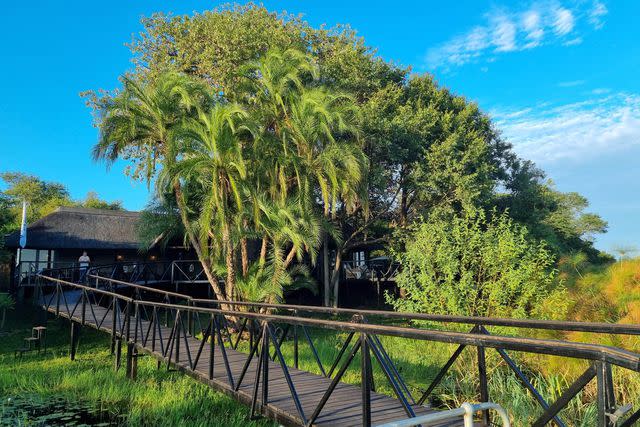
Elizabeth Heath
Our first full day of safari was a doozy, beginning with an animal-studded game drive through Chobe National Park. At 4,500 square miles, Chobe is Botswana’s third-largest national park, and it's known for its healthy population of African bush elephants — more than 50,000 roam in and out at any given time.
The elephants were slow to make an appearance that morning, but the kudus, impalas, baboons, warthogs, Cape buffalos, and hippos were not at all put off by the rain, nor were the countless species of birds. Even the lions obliged. But Sonny had a trick up his sleeve, and quickly went down a different track where no other Jeeps followed us. We watched breathlessly as a pride of five lions padded right past our open vehicle — a pinch-me moment that will be indelibly engraved in our memories.
On an afternoon water safari — one of several we’d take that week — we saw countless hippos, a few crocodiles, and many elephants up close. We also spent a morning on a village walk on Impalila Island led by Lennon, our safari guide who lives in a village close to the lodge. Cattle, small-scale farming, and fishing are mainstays here, and tourism also provides a source of income for villagers. Only a few villages are connected to a shaky electrical grid, and most households that can afford them have diesel-powered generators or solar panels for limited electrical supply. Attacks from hippos, crocodiles, and poisonous snakes, as well as water-borne illnesses, are constant threats to the island’s residents — Lennon’s own mom survived a crocodile encounter.
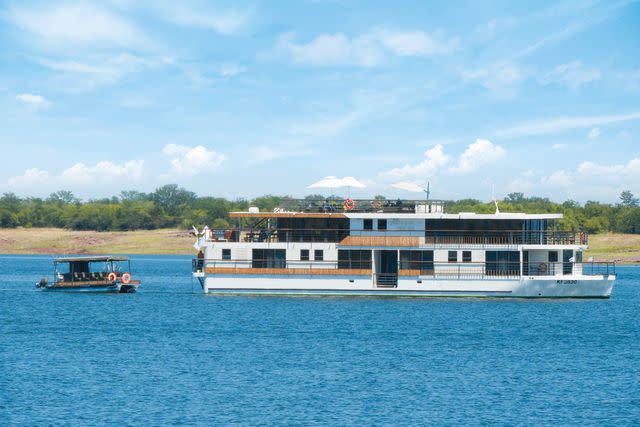
©Michelle Louise Lawson
We departed Namibia by way of Kasane — on two-, four-, and six-seater planes bound for Kariba, Zimbabwe, flying over boundless wilderness areas, mighty Victoria Falls, and the endless waters of Lake Kariba. CroisiEurope is a cruise line, after all, and the second half of our trip was spent aboard the Zimbabwean Dream, one of CroisiEurope’s two 16-person luxury houseboats that ply the shores of Lake Kariba, the world’s largest artificial lake.
At more than 2,000 square miles, Kariba feels more like an inland sea than a lake — I almost expected to see porpoise fins break the smooth surface. Instead, that surface was cut by hippos, who seemed to gather near every grassy bank, along with the occasional crocodile. Once again, elephants were everywhere. We’d wake to find them at the water’s edge or grazing the tall grass near the shoreline — a surreal view. We once counted a group of at least 23, including babies just a few weeks old. On our way from the ship back to Kariba Airport, our minibus had to make a quick maneuver in reverse to avoid the ire of two bull elephants walking down the road.
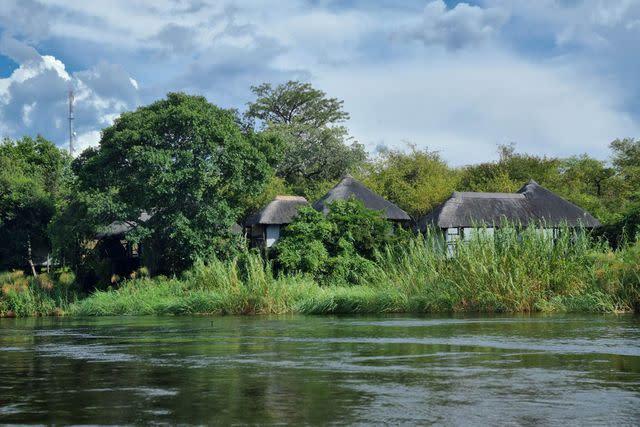
Elizabeth Heath
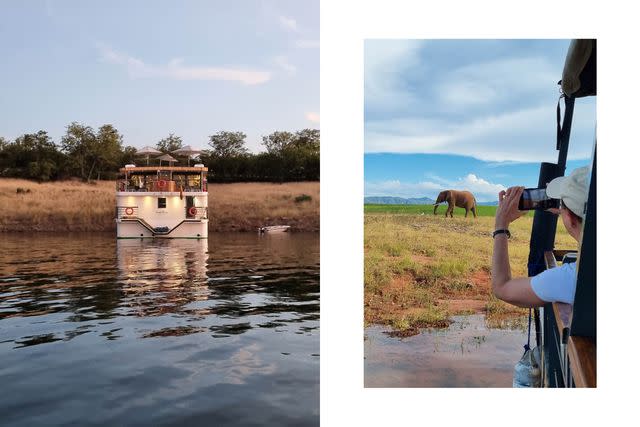
Elizabeth Heath
Our last stop was Victoria Falls, where we checked into Victoria Falls Safari Lodge, where all rooms overlook a watering hole. Here, too, the elephants did not disappoint. By late afternoon, they emerged from the surrounding forest to feed, bathe, and linger for hours by the water. It was tough to tear ourselves away at bedtime. A wet, exhilarating walk around several Victoria Falls viewpoints, as well as a thrilling helicopter ride the morning of our departure, capped a momentous trip.
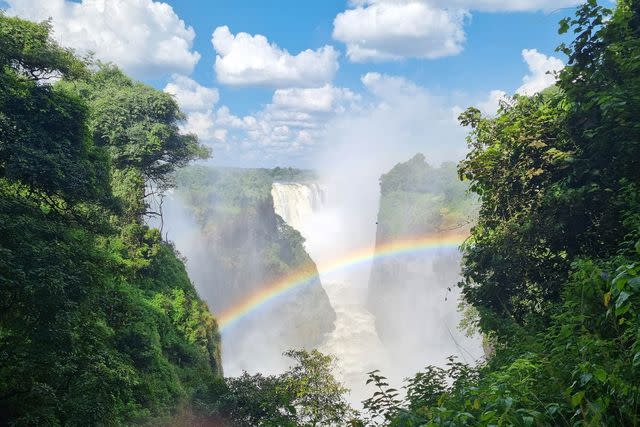
Elizabeth Heath
CroisiEurope’s southern Africa program is full of big adventures, offering the right mix of creature comforts while delivering a dizzying amount of animal sightings. The trips run in all but the height of summer (December to early March in in southern Africa), when heat, rain, and mosquitos make the voyage untenable. This safari adventure is priced at around $6,000 per person (airfare excluded).
For more Travel & Leisure news, make sure to sign up for our newsletter!
Read the original article on Travel & Leisure.

